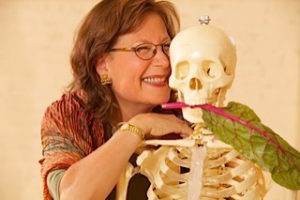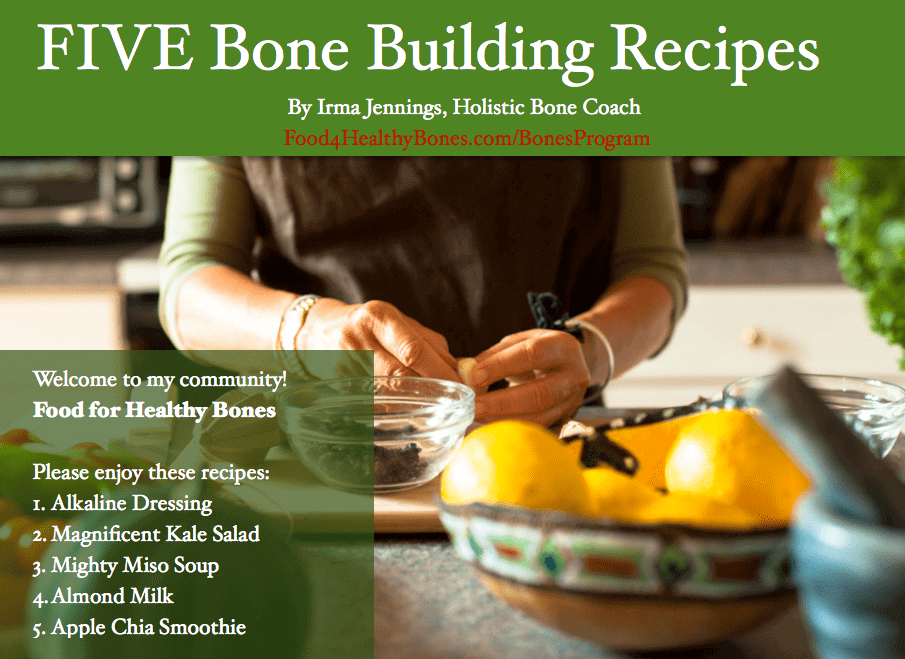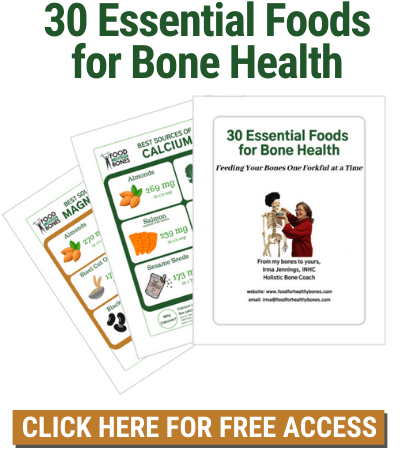When it comes to bones, I’m all about feeding my Skelly bone-building foods.
It’s always the first step in my bone health program.
You see, you can’t just pop a pill and keep poisoning your bones with bad food. But I do think that supplements can play an important role in boosting the nutrients that your bones need.
Maybe you don’t digest your food very well so you aren’t getting the nutrients your bones need. Or maybe you’re trying to eat right, but you’re not hitting your goals at every meal. I get that…
Now, I’m no expert on supplements. But I thought I’d share with you today the four supplements that I take to make sure my bones are getting the most important vitamins and minerals they need.
And before I get started, I’ll mention the one “bone” supplement that I DON’T take.
It’s calcium.
You see, instead of giving you harder bones, calcium supplements could give you hardened arteries…
A study in the Journal of the American Heart Association found that calcium supplements may significantly raise your risk of plaque buildup in the arteries and even heart damage. People in the study who took the most calcium as a supplement had a 22 percent increase in their risk of coronary artery calcification.[i]
But people who got their calcium through food had no increased risk of heart disease.
That’s why I don’t take calcium supplements any more. Instead I get my calcium the way nature intended – from my food.
But there are other bone nutrients that are so important I take a daily supplement.
Here are my top 4 bone supplements:
1. Vitamin D
The lower your vitamin D levels, the more likely you are to break a bone…
A recent study found 77 percent of patients with traumatic bone fractures have low levels of vitamin D.[ii] A traumatic fracture is a broken bone from a fall from a height, a car accident, playing sports, or something falling on you.
Another study also linked non-traumatic fractures with low vitamin D levels. Women with blood levels of 20 ng/ml or above of vitamin D were 46 percent less likely to have a non-traumatic fracture. And every 10 ng/ml increase in vitamin D levels cut fracture risk by 28 percent.[iii]
Your skin produces vitamin D when it’s exposed to the sun’s rays. But most of us don’t spend enough time in the sun. One study of 1,600 people found 89 percent were low in vitamin D.[iv]
I usually take 5,000 IU of vitamin D3 every day.
2. Magnesium
Studies prove a significant link between bone density and magnesium.[v]
Without magnesium, bone nutrients like calcium and vitamin D can’t do their jobs. Your body needs magnesium to convert vitamin D into its active form. If vitamin D is not activated it can’t turn on your body’s calcium absorption.[vi]
You also need magnesium to stimulate the hormone calcitonin. That helps draw calcium out of the blood and soft tissues and put it back into the bones.
The magnesium content of your bones decreases as you age.[vii] In addition, sugar and alcohol cause you to lose magnesium through your urine.
That’s why I take 2 400mg (800mg daily) of magnesium every evening. There are many different forms. I take magnesium dioxide. It also helps with constipation. Magnesium glycinate is a better choice if you don’t want the laxative effect.
3. Vitamin K2
Your bones need vitamin K2 to corral calcium. K2 hooks onto osteocalcin, a protein that helps anchor calcium in the bones. It drags osteocalcin to the bone so calcium can stick there and do its work.
Without K2, osteocalcin hangs out in the blood stream. It doesn’t get to the bones. The bones become porous. And calcium collects in the arteries or organs and hardens there.
Vitamin K2 also joins with vitamin D3 to increase production of osteocalcin in the cells that build bones (osteoblasts). It also inhibits production of cells that break down bone (osteoclasts).
Don’t get it confused with vitamin K1. That helps your blood clot. Vitamin K2 is different. It comes in several different forms called menaquinones (MK). They’re numbered from 4 to 9. The higher the number, the more bioavailable and long-lasting the K2.
I take this K2 in a Metagenics product called Coratin - Red Yeast Rice & Plant Sterol combination. It has a total of 60 micrograms of MK4 and MK 7.
4. Vitamin C
Vitamin C is needed for a healthy balance of bone-building osteoblasts and bone-destroying osteoclasts. It helps new osteoblasts form to build new bone. It also impedes the destruction of bone by osteoclasts.
When your levels of vitamin C are low, you have trouble building new bone and your bone breakdown speeds up.
I take 1,000 mg of vitamin C every day. Too much can give you an upset stomach and diarrhea. That’s why I take Perque buffered ascorbate powder. It’s easy on my stomach.
Please let me know how I can better serve you and your bones.
There is a wonderful alkalizing salad dressing video gift for you on the other side for your time.
Have your bones click —-> HERE
If you found this article helpful, please share my blog (using the share buttons on the bottom) with anyone you know who has bones.
From my bones to yours,
Irma


Let Me Support Your Bones
Get Customized In-Depth Private Session
Book a Private Coaching with Irma Now
Join Our Amazing Bone Tribe Community
Get the support & information you need to live fearlessly with your bones diagnosis
From my bones to yours,
Irma Jennings, INHC
Your Holistic Bone Coach
[email protected]

